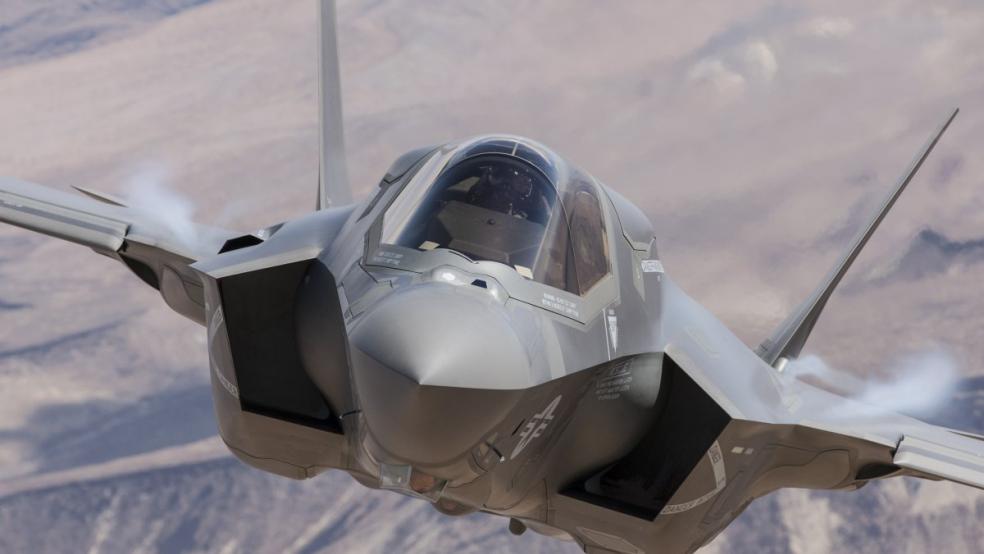The push by the U.S. Air Force to modernize its equipment, even as it pursues big-ticket items like the F-35 Joint Strike Fighter and a next-generation bomber, is setting up the Defense Department for a budgetary flood of spending, according to a new think-tank study.
The Pentagon is planning multiple acquisition and modernization programs, including updating all three legs of the nuclear triad, that will start putting extraordinary budget pressure on the agency in the 2020s, cresting at $232 billion in fiscal year 2022, says the report by the Center for International and Strategic Studies.
Related: The F-35 Stumbles Again as Test Chief Find a New Weakness: Cyberattacks
"These modernization programs, if not altered from current plans, will require either an increase in defense spending or a reallocation of resources within the defense budget," the report states.
The fact that the Air Force, not the Navy, is the main driver of the looming financial hit is surprising, given the Navy’s pursuit of its budget-busting Ohio-class replacement ballistic missile submarine, a program that could end up costing around $350 billion over its lifetime.
But those costs will be offset as other Navy efforts, like updating the service’s aviation fleet, wind down.
Meanwhile, funding for major Air Force acquisition programs is “projected to grow by 73 percent in real terms from FY 2015 to its projected peak in FY 2023," according to CSIS. The primary sources of the increased expenses are the F-35, the Long Range Strike-Bomber (LRS-B) and the KC-46A aerial refueling tanker.
Related: The Navy Hunts for Its Next-Generation Nuclear Submarine
By comparison, the Army’s top acquisition programs will rise a more modest 28 percent between fiscal 2015 and 2022.
The U.S. has spent nearly $400 billion to develop the F-35, making it the country’s most expensive weapons program. The Air Force wants to purchase 100 Long Range-Strike Bombers, which are expected to cost somewhere around $560 million per plane, and the program’s total price tag could exceed $100 billion over the next few decades. The cost of the tanker program is expected to come it at around $49 billion.
Adding to the pressure is the fact that the Air Force "is not only funding these three programs simultaneously but also funding the other major aircraft acquisitions planned for the same period," like starting production of a new combat helicopter, replacing ground surveillance aircraft and the VC-25, the military version of the 747 (a.k.a Air Force One), the new report states.
The study suggest the next administration could chip away at the enormous tab by either increasing the defense budget, which is expected to exceed $580 billion in fiscal 2017, cut military force structure like combat brigades and air wings, or eliminate or delay large acquisition programs.
Even then, it would take several of the proposed cost-savings measures, like cutting the Pentagon’s $10 to $15 billion in science and technology budget by a third to recoup $4 billion annually, to level out the scales.
Related: The Pentagon Decides How Many Budget-Busting Bombers It Wants
"None of these choices are easy, and the future remains as uncertain as ever; but making hard choices among weapon systems is the essence of peacetime defense strategy," the report’s authors write.
That warning is likely to be drowned about by the din of the presidential campaign, where most of the candidates on both sides have called for beefing up the military after years of budget cuts due to sequestration.





